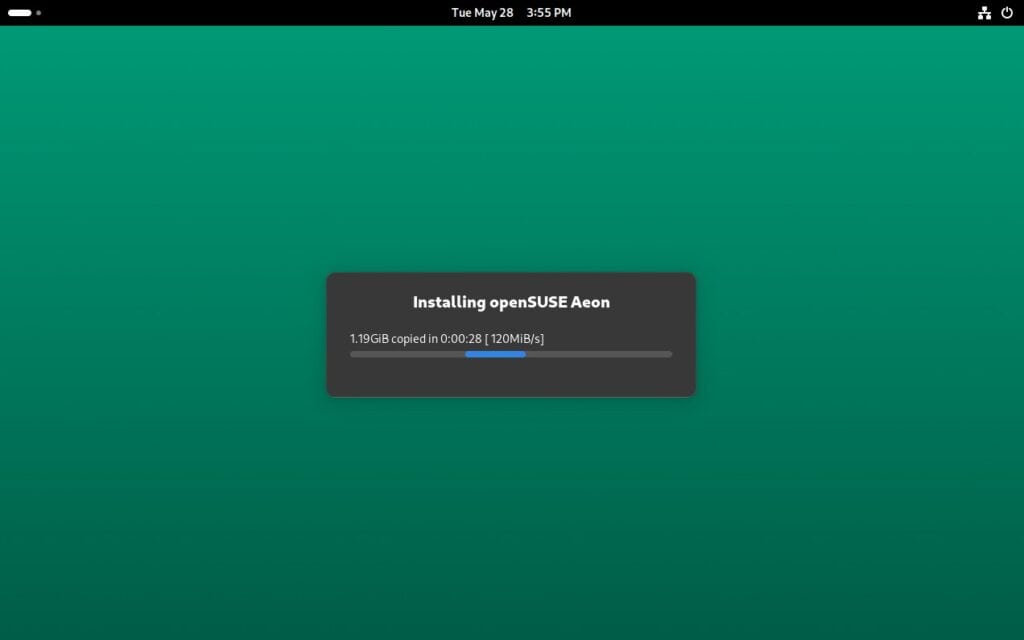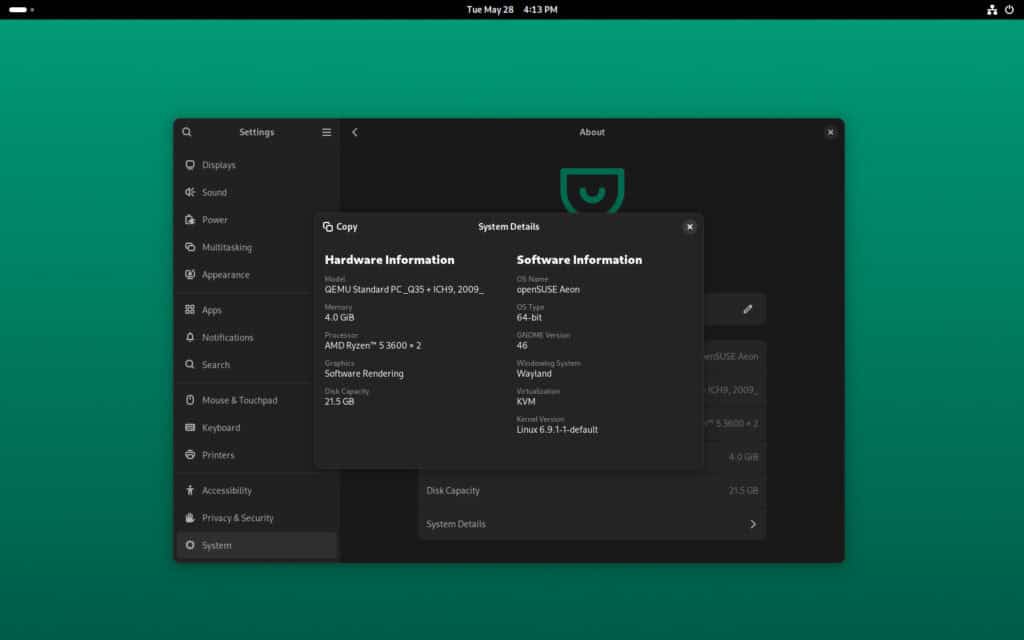openSUSE Aeon, a new desktop Linux distro still in development, just released its latest RC2 update. Aimed primarily at developers who prefer an effortless yet powerful computing environment, Aeon, formerly MicroOS Desktop, is an immutable openSUSE flavor providing only a minimal base system with a GNOME where all apps are available as Flatpak packages.
Unlike its siblings, Tumbleweed and Leap, which are tailored for users who enjoy customizing every aspect of their system, Aeon targets those who want their desktop to just “get stuff done” without the fuss.
New Features of openSUSE Aeon RC2
The newly released RC2 version of Aeon Desktop includes several enhancements; one of the highlights is the inclusion of the ZRAM Linux kernel module, which optimizes memory management by reducing the need for data swapping to slower HDDs or SSDs, thereby enhancing system performance.
Additionally, Aeon RC2 introduces an image-based installation process through its new installer, TIK (Transactional Installation Kit), which allows users to enjoy a uniform setup out of the box, greatly simplifying customization and system replication.

For those looking to switch from MicroOS Desktop or Tumbleweed, TIK can seamlessly transfer user accounts, applications, and configurations to Aeon, ensuring a smooth transition.
Regarding security, openSUSE Aeon steps up by disabling root account configuration. Users perform administrative tasks using their own password with sudo and policykit, which decreases security risks and simplifies the user experience by eliminating the need to manage multiple passwords.
On top of that, the boot process in RC2 now bets on systemd-boot, making it extremely fast—approximately eight seconds on slower hardware.

Unique to Aeon among openSUSE distributions is its automatic downloading and updating of x86_64_v3 optimized libraries, if supported by the hardware, which ensures top performance without user intervention. Moreover, Aeon’s system configuration is optimized for gaming with specific SELinux policies, catering to gamers without compromising security.
Another significant feature is the daily automatic updating of user Distroboxes and other system components like Flatpak updates, which keeps the system current with minimal user effort. Remote access, while disabled by default for security reasons, can be activated and managed effortlessly via the GNOME settings app, allowing for customization based on user preference.
Lastly, the RC2 release also marks the first time openSUSE utilizes systemd-repart in line with the Linux Userspace API’s Discoverable Partitions Specification, facilitating intuitive and efficient disk management.
Refer to the release announcement for detailed information about all changes. To learn more about openSUSE Aeon, visit the project’s website.

Thansk for the coverage….
Just a point of clarification if you don't mind….
It's not just aimed at devs, it's also aimed at people who want a simple Chromebook like experience, where everything is handled on the backend. See website for direct quote.